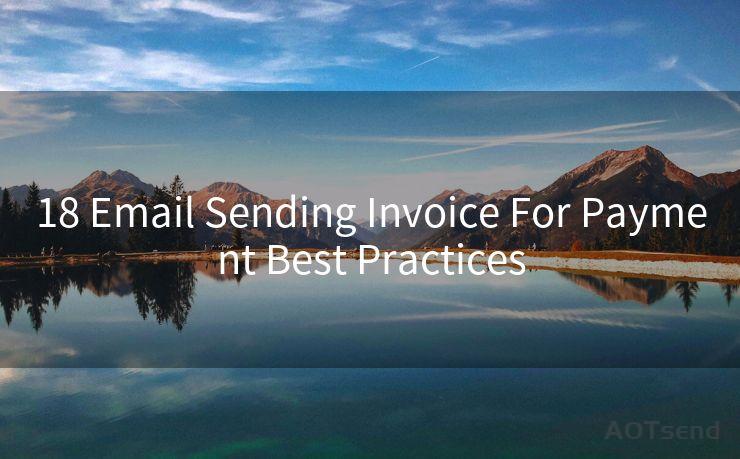18 Email Sending Invoice For Payment Best Practices




When it comes to invoicing and getting paid promptly, effective communication is key. Email remains a popular and efficient method for sending invoices to clients. However, there are best practices to follow to ensure your invoices are received, understood, and actioned upon in a timely manner. Here are 18 best practices for sending invoices via email for payment.
1. Clear and Professional Subject Line
Start with a clear and concise subject line that summarizes the content of the email, such as "Invoice for [Your Service] - [Invoice Number]". This helps the recipient understand the email's purpose immediately.
2. Use a Professional Email Template
Utilize a professional and clean email template for your invoices. This ensures consistency and professionalism in your communication.

3. Include All Relevant Invoice Details
Make sure your invoice includes all the necessary details like invoice number, date, services provided, costs, payment terms, and due date.
4. Attach the Invoice as a PDF
Attaching the invoice as a PDF ensures compatibility and readability across different devices and platforms.
5. Personalize the Email
Address the recipient by name and use a friendly yet professional tone. Personalization helps build rapport and encourages timely payments.
6. Summarize the Invoice
Provide a brief summary of the invoice in the email body, highlighting the key details like the total amount due and the payment deadline.
7. Clear Payment Instructions
Include clear and detailed payment instructions, including accepted payment methods, payment addresses, and any relevant banking information.
8. Request Confirmation of Receipt
Ask the recipient to confirm receipt of the invoice and acknowledge the payment schedule. This creates a paper trail and ensures both parties are on the same page.
9. Follow Up Promptly
If payment is not received by the due date, send a polite follow-up email to inquire about the status of the payment.
10. Offer Multiple Payment Options
Provide flexibility by offering various payment methods such as credit cards, online transfers, or even checks.
11. Use Secure Payment Links
If possible, include a secure payment link in the email that allows clients to pay directly online.
12. Maintain Professional Language
Keep the tone of your email professional and courteous, avoiding any language that could be interpreted as demanding or aggressive.
13. Thank the Client
Express gratitude for the client's business. A simple "thank you" goes a long way in maintaining positive relationships.
14. Include Contact Information
Provide your contact information in case the client has any questions or concerns about the invoice.
🔔🔔🔔
【AOTsend Email API】:AOTsend is a Managed Email Service for sending transactional emails. Support Email Types: reminders, authentication, confirmations, notifications, verification codes, invoices, password resets, account activations, billing statements, two-factor authentication (2FA), and one-time passwords (OTP) emails, etc. $0.28 per 1000 Emails. 99% Delivery, 98% Inbox Rate.
You might be interested in:
Why did we start the AOTsend project, Brand Story?
What is a Managed Email API, How it Works?
Best 25+ Email Marketing Platforms (Authority,Keywords&Traffic Comparison)
Best 24+ Email Marketing Service (Price, Pros&Cons Comparison)
Email APIs vs SMTP: How they Works, Any Difference?
15. Avoid Frequent Follow-Ups
While it's important to follow up, avoid bombarding clients with too many emails. Space out your communications to avoid annoyance.
16. Use CC and BCC Sparingly
Only use the "CC" or "BCC" fields when necessary to maintain the privacy of email addresses and reduce clutter.
17. Test Email Deliverability
Periodically check the deliverability of your emails to ensure they're not being marked as spam or blocked by firewalls.
18. Keep Records
Maintain a record of all invoice emails sent, including dates and times. This can be crucial for reference in case of any disputes.
By following these best practices, you can increase the likelihood of timely payments and maintain positive relationships with your clients. Remember, effective communication is essential for smooth business operations.




Scan the QR code to access on your mobile device.
Copyright notice: This article is published by AotSend. Reproduction requires attribution.
Article Link:https://www.mailwot.com/p4906.html



